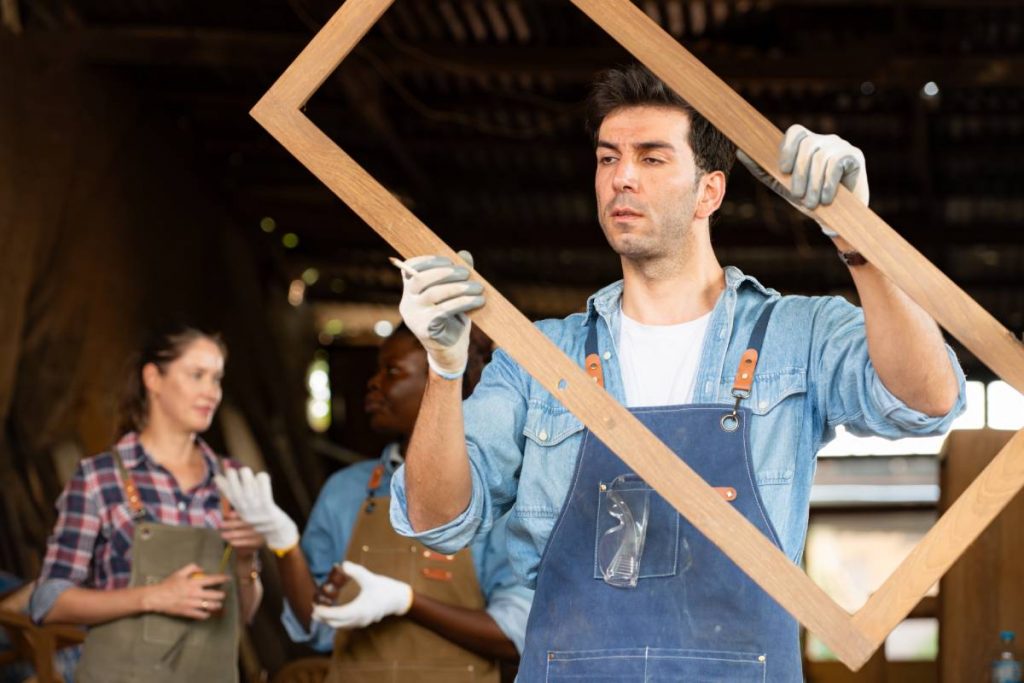The handyman industry in Australia is thriving, fueled by the growing demand for versatile, skilled professionals who can tackle a wide range of household and commercial maintenance tasks.
Whether it’s repairing leaky faucets, painting walls, assembling furniture, or fixing electrical issues, Australians consistently seek reliable handymen to keep their homes and businesses in top shape. But among this diverse array of tasks, one question stands out: what is the most needed handyman skill in Australia?
To answer this, let’s delve into the key factors driving the handyman industry, examine the most common tasks, and identify the skills that are in the highest demand across the country.
Understanding the Handyman Market in Australia
Australia’s property market, climate, and lifestyle preferences significantly influence the handyman industry. For instance, the large number of detached houses means there is a continual need for outdoor maintenance like fencing, landscaping, and gutter cleaning. Meanwhile, urban apartments often require interior repairs and maintenance tasks like plumbing, electrical work, and furniture assembly.
Additionally, Australians are known for their “do-it-yourself” culture. However, as lives become busier, many people now prefer outsourcing tasks to professionals who can deliver quality results efficiently. As a result, skilled handymen who can handle multiple trades are in high demand.

The Top Handyman Skills in Demand
Based on market trends and customer needs, the following skills are among the most sought-after in Australia:
1. Carpentry
Carpentry consistently ranks as one of the most essential handyman skills. From building decks and repairing doors to installing shelves and framing walls, a handyman with carpentry expertise can cater to various tasks.
Australia’s outdoor lifestyle also fuels the demand for wooden decks, pergolas, and fences, all of which require expert craftsmanship. As sustainability becomes a growing concern, many Australians are also opting for carpentry repairs and restorations over replacements, creating additional demand for skilled woodworkers.
2. Plumbing
Plumbing issues, such as water pipe leaks, leaky taps, clogged drains, and faulty toilets, are common in Australian households. Although major plumbing work requires a licensed plumber, handymen with basic plumbing skills are frequently called upon to handle minor repairs and installations.
Plumbing knowledge is particularly valuable in areas with older homes, where ageing pipes and fixtures often lead to recurring problems.
3. Electrical Repairs
While major electrical installations and repairs must be performed by licensed electricians, there is a significant demand for handymen who can tackle smaller electrical tasks. This includes installing light fixtures, replacing switches, and troubleshooting minor electrical faults.
The increasing adoption of smart home technologies has also created opportunities for handymen skilled in setting up and maintaining these systems.
4. Painting and Decorating
Painting is another highly requested service, whether it’s refreshing a room’s walls, touching up exterior paint, or adding decorative finishes. Australians value well-maintained homes, and a fresh coat of paint can make a significant difference in property appearance and value.
Handymen with painting skills often stand out because they can provide additional related services, such as plastering and minor wall repairs, making them a one-stop solution for home improvement projects.
5. Gutter Cleaning and Roof Repairs
Australia’s climate, with its mix of heavy rains and long dry spells, makes gutter maintenance a critical task. Blocked gutters can lead to water damage, while damaged roofs can compromise a home’s structural integrity.
Handymen equipped to clean gutters, repair roof leaks, and replace tiles are in high demand, especially in regions prone to extreme weather conditions like Queensland and New South Wales.
6. General Maintenance and Odd Jobs
Many Australians look for handymen who can perform a variety of smaller tasks, such as fixing squeaky doors, assembling flat-pack furniture, hanging pictures, or patching drywall. These “jack-of-all-trades” services are invaluable to customers who want to save time and effort by hiring one professional to address multiple issues in a single visit.

The Most Needed Skill: Versatility
While the skills mentioned above are all in high demand, the single most important attribute for a handyman in Australia is versatility. Customers increasingly seek professionals who can tackle a wide range of tasks, providing convenience and cost-effectiveness.
For instance, a homeowner who needs a leaking tap fixed, a wall painted, and a broken door repaired would prefer hiring one versatile handyman rather than coordinating with multiple specialists. This ability to handle diverse tasks not only boosts a handyman’s employability but also enhances customer satisfaction and loyalty.
Building a Versatile Skill Set
To become a sought-after handyman in Australia, it’s essential to cultivate a broad range of skills. Here are some tips:
1. Invest in Training and Certifications
While formal qualifications aren’t always necessary, certain certifications can expand your service offerings and build customer trust. For example:
- A White Card allows you to work on construction sites.
- Basic plumbing and electrical certifications enable you to handle minor repairs.
- Specialized training in areas like tiling or appliance repair can open up additional opportunities.
2. Build a Toolbox of Essential Equipment
Investing in high-quality tools is a must for any handyman. A versatile toolbox might include power drills, saws, paintbrushes, plumbing wrenches, and electrical testers, among other items.
3. Keep Up with Industry Trends
Staying informed about new materials, techniques, and technologies can give you an edge. For instance, understanding energy-efficient solutions or smart home systems can make you more appealing to eco-conscious and tech-savvy clients.
4. Develop Strong Customer Service Skills
In addition to technical expertise, excellent communication and reliability are crucial. Many clients value handymen who are punctual, respectful, and transparent about costs and timelines.
The Role of Technology
Technology is playing an increasingly significant role in the handyman industry. Online platforms and apps make it easier for customers to find skilled handymen and for handymen to manage bookings and showcase their expertise.
Learning to leverage these platforms can help you reach more clients and streamline your business operations. Additionally, familiarity with digital tools like invoicing software and project management apps can enhance your professionalism.
Conclusion
The most needed handyman skill in Australia isn’t just a single trade like carpentry or plumbing; it’s the ability to be versatile. Handymen who can offer a diverse range of services, adapt to different customer needs, and maintain high standards of quality are the most sought-after in the industry.
By investing in training, building a versatile skill set, and embracing technology, aspiring handymen can position themselves for long-term success in Australia’s dynamic market. Whether you’re just starting out or looking to expand your business, remember that versatility, combined with excellent customer service, is the key to becoming an indispensable handyman.

